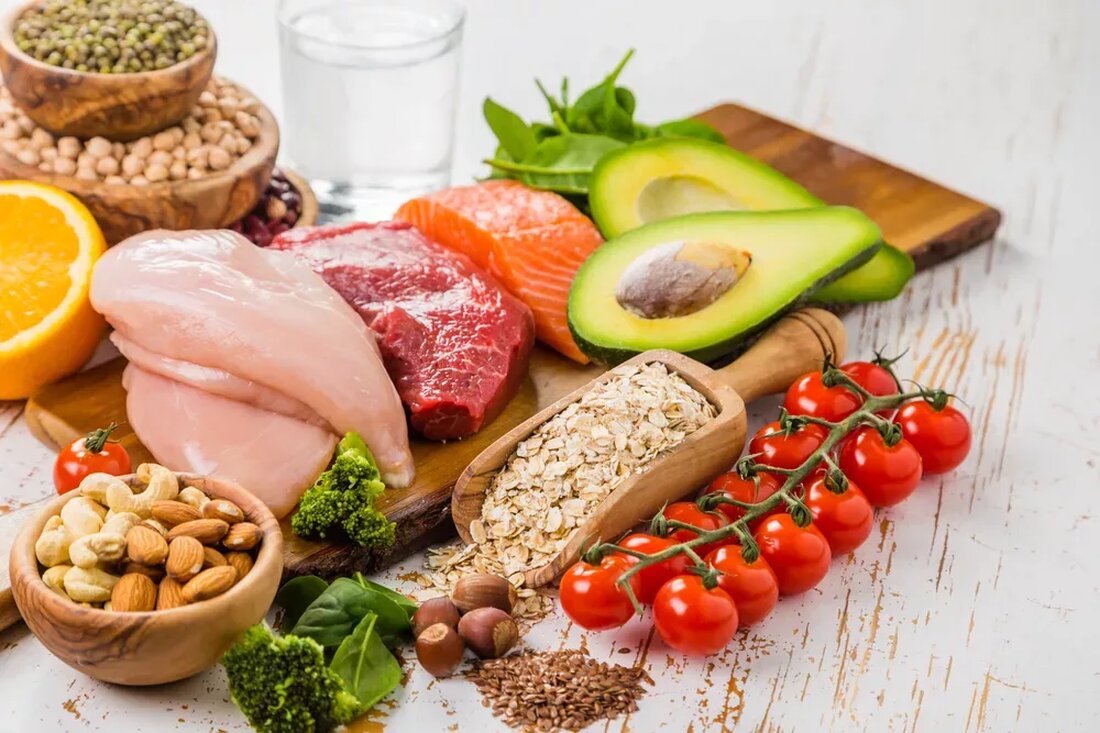Lower cholesterol - without medication
The body needs cholesterol to make hormones and vitamins and to digest food. But too much of this waxy substance—particularly the “bad” LDL (low-density lipoprotein) cholesterol—can attach to the walls of arteries and limit or block blood flow, which can eventually lead to heart disease. “Good” HDL cholesterol (high density lipoprotein) transports LDL cholesterol from the body to the liver, whereby it is excreted from the body. Many patients with high cholesterol take cholesterol-lowering medications known as “statins.” Although statins are effective in lowering blood cholesterol levels, some people who use them experience side effects, including muscle problems, diabetes, and increased...

Lower cholesterol - without medication
The body needs cholesterol to make hormones and vitamins and to digest food. But too much of this waxy substance—particularly the “bad” LDL (low-density lipoprotein) cholesterol—can attach to the walls of arteries and limit or block blood flow, which can eventually lead to heart disease. “Good” HDL cholesterol (high density lipoprotein) transports LDL cholesterol from the body to the liver, whereby it is excreted from the body.
Many patients with high cholesterol take cholesterol-lowering medications known as “statins.” Although statins are effective in reducing blood cholesterol levels, some people who use them experience side effects, including muscle problems, diabetes, and an increased risk of stroke.
By lowering cholesterol naturally, patients can sometimes avoid or reduce medications. (Always talk to your doctor before stopping any medication or changing the dose.)
What causes high cholesterol?
Many things contribute to high total cholesterol, which is calculated by adding your HDL and LDL cholesterol levels and 20 percent of your triglyceride levels. These are the main risk factors:
- Eine schlechte Ernährung: Konsumieren Sie gesättigte Fettsäuren wie rotes Fleisch und Vollfett-Milchprodukte sowie Transfette, die normalerweise in Lebensmitteln enthalten sind, die gehärtete Öle enthalten, wie Margarine, Pommes Frites und viele verpackte Snacks und Süßigkeiten.
- Vererbung: Manche Menschen erben Gene, die sie für einen hohen Cholesterinspiegel prädisponieren.
- Alter: Das Risiko für einen hohen Cholesterinspiegel steigt natürlich mit dem Alter.
- Fettleibigkeit: Übergewicht oder Fettleibigkeit erhöhen tendenziell Ihren LDL-Spiegel, senken den HDL-Cholesterinspiegel und erhöhen Triglyceride, eine besonders gefährliche Art von Blutfett, was Ihr Risiko für koronare Herzerkrankungen erhöht.
- Inaktivität: Ein sitzender Lebensstil erhöht Ihr LDL-Cholesterin und senkt das HDL-Cholesterin. Es trägt auch zur Fettleibigkeit bei.
- Diabetes: Diabetes senkt normalerweise den HDL-Cholesterinspiegel und erhöht den Triglycerid- und LDL-Cholesterinspiegel.
Natural Ways to Lower Cholesterol
Medication is not always needed to protect heart health. You may be able to significantly lower your cholesterol by taking the following steps:
Exercise
The saying “Exercise is the best medicine” has its merits. Studies have shown that incorporating physical activity into your daily routine promotes healthy HDL cholesterol levels. This research has also shown that regular exercise can even offset increases in unhealthy LDL cholesterol and triglyceride levels. Just 30 minutes of moderately intense physical activity throughout the week can help get you back on the path to wellness. Some healthy activities you can take up include brisk walking, swimming, running, or cycling.
Quit smoking
When you kick the habit, HDL cholesterol levels rise and your heart health improves in many other ways. Smoking increases heart rate and blood pressure as well as clotting and inflammation.
Lose weight
Weight loss is particularly important for people with metabolic syndrome — a constellation of risk factors including low HDL cholesterol, large waist circumference and high triglycerides. Losing weight while reducing the number of calories consumed is essential.
Reduce stress
In some people, chronic stress can sometimes increase LDL cholesterol and decrease HDL cholesterol. You can reduce the effects of stress through exercise, as well as activities such as yoga, deep breathing, and meditation.
The ideal diet to combat high cholesterol is one that emphasizes fruits, vegetables, whole grains, and lean proteins.
Try the Mediterranean diet
Research has shown that the Mediterranean diet can improve HDL cholesterol function in people at risk for heart disease. It may also help clear the coronary arteries of excess cholesterol and keep blood vessels open, reducing the risk of heart disease. (Source)
Follow a plant-based diet
There is also the possibility of lowering HDL cholesterol levels through a natural plant-based diet. Studies have shown that a diet high in fiber and low in fat helps achieve or maintain normal, healthy cholesterol levels - something that a meat-based diet can prevent.
Limit saturated fat
Limiting your consumption of saturated fat is particularly important for lowering LDL cholesterol. Saturated fats are found in red meat, especially fattier cuts, skin-on poultry, lard, and some vegetable oils, including coconut and palm oil. Instead, eat more unsaturated healthy fats like olive oil. (See “Foods That Lower Cholesterol” below.)
Remove trans fat
It's best to try to avoid trans fats altogether. These unhealthy fats, created when hydrogen gas is used to convert liquid vegetable oils into solids, are found in stick margarine. baked goods such as crackers, cookies, donuts and bread; and foods fried in hydrogenated oils, such as French fries and chicken.
Avoid alcohol
Although we often hear that small amounts of alcohol can reduce the risk of heart disease in some people, there is a very fine line between the amount that can provide this supposed benefit and the amount that contributes to high blood pressure and high triglycerides. If you're trying to live a healthy life, it's best to avoid alcohol completely. (Source)
Foods that lower cholesterol
You can eat certain foods that are known to help lower total cholesterol, including the following.
Soluble fiber
Fiber, especially soluble fiber, prevents cholesterol and fats from being absorbed into the bloodstream via the gastrointestinal tract. Studies suggest that people who increase their soluble fiber intake by five to 10 grams daily can lower their LDL cholesterol by about five percent. Good sources of soluble fiber are oatmeal and oat bran; legumes such as kidney beans, lentils and lima beans; and fruits such as peaches, plums, oranges, apples and berries. Ironically, if you need fiber, a fiber supplement is less than ideal as it is known to cause blockages and gastrointestinal distress in some people.
Unsaturated fats
When used instead of saturated fats, unsaturated fats can help you lower your cholesterol. There are two types of unsaturated fats: monounsaturated fats, found in olive, canola, sunflower and peanut oils, and polyunsaturated fats, found in safflower, sunflower, corn, soybean and cottonseed oils. Nuts, olives and avocados also provide these heart-healthy fats.
Plant Stanols & Sterols
These substances, obtained from soy and pine oils, are added to some types of margarine. They block the absorption of cholesterol by the intestinal walls, thereby lowering LDL cholesterol. Just two grams a day can reduce LDL cholesterol by up to 15 percent, according to the National Institutes of Health. ((link removed))
Supplements that lower cholesterol levels
In addition to a healthy diet, taking certain supplements may help reduce the need for statins or reduce the portion size needed for a healthy cholesterol reading. The following supplements show promise for lowering cholesterol naturally. (It is advisable to discuss the use of dietary supplements with your doctor.)
Glucomannan
A recent review of studies found that glucomannan, a fiber-rich extract from the Asian konjac plant, can lower LDL cholesterol by about 10 percent. Other research also showed a reduction in the effect of glucomannan on total cholesterol, triglycerides and blood pressure. ((Link removed), (Link removed))
Curcumin
Research suggests that this supplement, derived from turmeric root, may promote normal triglyceride and LDL cholesterol levels. Although more research is needed to determine the ideal portion size, it can't hurt to take a supplement or add more turmeric, which is responsible for the golden color of many Indian dishes, to your diet. ((link removed))
Bergamot
An extract from this pungent Italian citrus fruit may help lower overall cholesterol levels. One study found that participants' cholesterol fell from an average of 278 mg/dL of blood to 191, which is the healthy range. In the study, participants were able to reduce the dose of their statin medications. Bergamot may also increase HDL cholesterol levels. ((link removed))
Garlic
There is evidence that garlic supplements can slightly lower cholesterol levels. A 2013 review of studies that included 39 previous studies found that garlic reduced total cholesterol by 17 mg/dL and LDL cholesterol by about 9 mg/dL in people with total cholesterol levels above 200 mg/dL. ((link removed))
Coenzyme Q10 (CoQ10)
There is evidence that a Coenzyme Q10 supplement may promote normal LDL cholesterol and triglycerides. It may also reduce muscle weakness associated with statins. ((Link removed), (Link removed))
Normal cholesterol levels
To stay healthy and reduce your risk of heart disease, heart attacks and strokes, it's important to keep an eye on cholesterol levels. Do you know your numbers?
Desirable cholesterol levels are as follows:
- Gesamtcholesterin: Weniger als 170 mg / dl
- Niedriges („schlechtes“) LDL-Cholesterin: Weniger als 110 mg / dl
- Hohes („gutes“) HDL-Cholesterin: 35 mg / dl oder höher
- Triglyceride: Weniger als 150 mg / dl
With knowledge and hard work, you can effectively lower your cholesterol naturally. Together, you and your doctor can determine a course of action to achieve your ideal cholesterol and keep it in the healthy zone.

 Suche
Suche
 Mein Konto
Mein Konto
